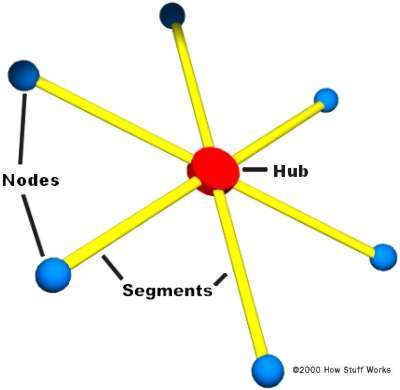|
LITR 4368 Literature of the Future |
 Pre-Midterm Assignment 2016 |
 |
This webpage constitutes this semester's pre-midterm assignment, to be updated until Tuesday, 16 February, when paper copies will be distributed.
Relative weight:
10-20% of final grade
Format: email; open-book and open-notebook.
Date (window for email submission): 17-20 February. Email students can email the pre-midterm to whiteC@uhcl.edu any time after class on 16 February up to 11:59pm 20 February.
![]()
Content: Start 2 essays you'll continue in your midterm and final exam.
![]() Essay 1: Course Content Essay:
Narratives of the Future
(2-3 paragraphs): Begin
midterm
Essay
1 comparing and evaluating
3 narratives of the future
Essay 1: Course Content Essay:
Narratives of the Future
(2-3 paragraphs): Begin
midterm
Essay
1 comparing and evaluating
3 narratives of the future
![]() Essay 2: Research & Reading Essay Topic Proposal
(1-2
paragraphs):
Propose a personal/professional research topic in our course and readings (to be
researched and extended for Essay 2 in midterm and
final exam)
Essay 2: Research & Reading Essay Topic Proposal
(1-2
paragraphs):
Propose a personal/professional research topic in our course and readings (to be
researched and extended for Essay 2 in midterm and
final exam)
Special Requirements / Instructions:
Both essays must have
titles
![]() Refer to
at least one midterm
answer
from a previous class on
course webpage's
Model Assignments at some point in
Essay 1.
Refer to
at least one midterm
answer
from a previous class on
course webpage's
Model Assignments at some point in
Essay 1.
![]() You may
refer to course texts in
abbreviated form, e. g.
Parable,
“Garden,” “Gernsback.”
You may
refer to course texts in
abbreviated form, e. g.
Parable,
“Garden,” “Gernsback.”
![]() Overlap between essays is possible.
Overlap between essays is possible.
![]() Show you've reviewed our course's
instructional webpages on essential terms by using
terrms and paraphrasing information provided. Of course you can't reproduce every term-page, but best exams in past semesters show
this knowledge,
while struggling exams either don't use course terms or use them in brief, superficial ways.
Show you've reviewed our course's
instructional webpages on essential terms by using
terrms and paraphrasing information provided. Of course you can't reproduce every term-page, but best exams in past semesters show
this knowledge,
while struggling exams either don't use course terms or use them in brief, superficial ways.
![]()
Email
your pre-midterm submission to instructor at
whiteC@uhcl.edu.
·
Attach appropriate word processing file(s) to an email for
whiteC@uhcl.edu.
(Microsoft Word works, Microsoft Works doesn't)
· Copy
and paste contents of your word processing file into an email message to
whiteC@uhcl.edu
Email acknowledgement of receipt:
Instructor usually acknowledges receipt of your midterm within a few hours
(unless you send it at an odd time).
Email problems?
A problem or two with email is normal in a class this size. Don't panic—communicate.
We'll
work things out.
Spacing:
No need to double-space, but OK if you do. All electronic submissions are
converted to single-space for reading onscreen.
Return of grades, etc.: Approximately 1-2 weeks after submission.
Pre-Midterm Content Outline—Two (2) Question Topics > Two brief essays total
![]() Essay 1: Course Content Essay:
Narratives of the Future (2-3
paragraphs): Begin midterm essay comparing and evaluating
3 narratives of the future
Essay 1: Course Content Essay:
Narratives of the Future (2-3
paragraphs): Begin midterm essay comparing and evaluating
3 narratives of the future
![]()
![]() How are you putting the materials together into a whole understanding? Consider
emphasizing narratives as story-telling, story-telling as problem-solving.
How are you putting the materials together into a whole understanding? Consider
emphasizing narratives as story-telling, story-telling as problem-solving.
![]()
![]() So far we've barely studied "alternative
futures," so concentrate on
apocalypse
and
evolution, but welcome to look ahead briefly to
alternative
futures as inclined.
So far we've barely studied "alternative
futures," so concentrate on
apocalypse
and
evolution, but welcome to look ahead briefly to
alternative
futures as inclined.
Special Requirements / Instructions:
![]() Refer to something you learned from an "Essay #1" in
Model Assignments. (What you learned may
bear directly on future-narratives, or on what you learned about
conceptualizing or organizing this essay assignment.)
Refer to something you learned from an "Essay #1" in
Model Assignments. (What you learned may
bear directly on future-narratives, or on what you learned about
conceptualizing or organizing this essay assignment.)
Advice:
![]() Refer frequently to texts, terms, and objectives. Integrate terms, examples,
themes.
Refer frequently to texts, terms, and objectives. Integrate terms, examples,
themes.
![]() What
signs, symbols, or
metaphors, distinguish one
narrative of the future from another? How
may
one narrative turn into the other?
Where or how do these narratives overlap or conflict?
What
signs, symbols, or
metaphors, distinguish one
narrative of the future from another? How
may
one narrative turn into the other?
Where or how do these narratives overlap or conflict?
![]() What literary and cultural attractions or appeals to
apocalypse
and
evolution?
What literary and cultural attractions or appeals to
apocalypse
and
evolution?
![]()
![]()
![]() Essay 2: Research & Reading Essay Topic Proposal
(1-2
paragraphs): Propose a personal/professional research topic in our course and readings
(to be
researched and extended for Essay 2 in midterm and
final exam)
Essay 2: Research & Reading Essay Topic Proposal
(1-2
paragraphs): Propose a personal/professional research topic in our course and readings
(to be
researched and extended for Essay 2 in midterm and
final exam)
![]() "personal" = what
you've learned or thought before + personal future
"personal" = what
you've learned or thought before + personal future
![]() "professional" = application to student career,
teaching career, or other professional plans
"professional" = application to student career,
teaching career, or other professional plans
The topic should connect to our course objectives and texts, as your research sources are expected to include at least some of our course's readings.
![]() For the
midterm, you must refer to at least two of our course texts and to
at least two outside sources with helpful information about your research topic.
For the
midterm, you must refer to at least two of our course texts and to
at least two outside sources with helpful information about your research topic.
![]() For the
final exam, you will revise and extend the draft you wrote for
your midterm, adding at least two additional course texts and at least two
additional outside sources.
For the
final exam, you will revise and extend the draft you wrote for
your midterm, adding at least two additional course texts and at least two
additional outside sources.
![]() For this pre-midterm, you should write about what you want to learn, where or
how you will look for information or ideas.
For this pre-midterm, you should write about what you want to learn, where or
how you will look for information or ideas.
In any of these exams, you may refer to other stories, books, movies, TV, or other media that inform your knowledge of this subject or story-line.
Additional content requirements or suggestions for Essay 2 research proposal:
![]() Explain why you chose your topic, where the idea came from,
where you saw it in our texts so far (or later), and any previous
experience reading about or otherwise experiencing this subject or area of
study.
Explain why you chose your topic, where the idea came from,
where you saw it in our texts so far (or later), and any previous
experience reading about or otherwise experiencing this subject or area of
study.
![]() Consider other possible topics, or how your topic may evolve as you research it.
Consider other possible topics, or how your topic may evolve as you research it.
![]() What theme(s), idea(s), aspect(s), or element(s) of our course intrigue you or
matter most? Why? What issue(s) seem most important and worth reading and
discussing? What do you learn about your interests or assumptions?
What theme(s), idea(s), aspect(s), or element(s) of our course intrigue you or
matter most? Why? What issue(s) seem most important and worth reading and
discussing? What do you learn about your interests or assumptions?
![]() Your emphasis may be literary, cultural-social-historical, personal, or
combinations, but use examples from
texts to illustrate and develop insights, and use terms and objectives to
connect to the course.
Your emphasis may be literary, cultural-social-historical, personal, or
combinations, but use examples from
texts to illustrate and develop insights, and use terms and objectives to
connect to the course.
![]() Overlap with Essay 1 is possible.
Overlap with Essay 1 is possible.
Choosing a topic:
Other ways to choose a topic:
![]() When
writing Essay 1, pay attention to issues you want to write about
but have to leave out or minimize.
When
writing Essay 1, pay attention to issues you want to write about
but have to leave out or minimize.
![]() Reflect on which readings you liked or remember most, and ask what about them
interested or bothered you, and for what reason.
Reflect on which readings you liked or remember most, and ask what about them
interested or bothered you, and for what reason.
For midterm and final exam, you will continue this topic in reference to texts read after the midterm. The topic can be varied according to what you see in those texts. If you change topics significantly, at least acknoweldge and rationalize the change.
Don't feel pressure to conform to views of instructor. The point of the essay is to show yourself learning.
![]()
Evaluation standards: Readability, competence levels, and interest.
Readability & surface competence: Your reader must be able to process what you're reporting. Given the pressures of a time writing exercise, some rough edges are acceptable, but chronic errors or elementary style limit quality.
Content quality: use of course resources (objectives, terms, lecture, discussion, instructional links, coverage of required texts.); comprehension of subject; demonstration of learning.
+ interest & significance: Make your reader want to process your essay. Make the information meaningful. Make everything matter to our study of literature and culture.
Thematic organization: Unify materials along a line of thought that a reader can follow from start to finish.
